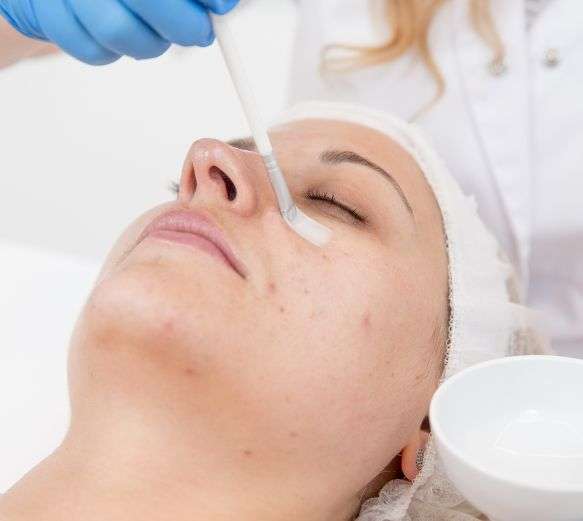Acne is a common skin condition that affects people of all ages, leaving behind not just physical scars but also emotional ones. Post-acne care is essential for minimizing residual marks, improving skin texture, and enhancing self-confidence. This article delves into effective Acne Treatment In Dubai for patients seeking to address post-acne concerns.
Understanding Post-Acne Marks
After acne lesions heal, they can leave behind different types of marks, including:
- Hyperpigmentation: Dark spots that remain after acne has cleared, caused by excess melanin production.
- Atrophic Scars: Indented scars that occur when the skin loses collagen during the healing process.
- Hypertrophic Scars: Raised scars that develop when the body produces too much collagen during healing.
Recognizing the type of marks left by acne is crucial for choosing the right treatment options.
Top Treatments for Post-Acne Care
1. Topical Treatments
Many over-the-counter and prescription topical treatments can effectively reduce post-acne marks:
- Retinoids: These vitamin A derivatives accelerate cell turnover, helping to fade hyperpigmentation and improve skin texture. Common options include tretinoin and adapalene.
- Vitamin C: Known for its antioxidant properties, vitamin C serums can help lighten hyperpigmented areas and enhance overall skin tone.
- Alpha Hydroxy Acids (AHAs): AHAs, like glycolic acid, exfoliate the skin's surface, promoting the removal of dead skin cells and reducing the appearance of scars.
- Beta Hydroxy Acids (BHAs): Salicylic acid, a BHA, helps to unclog pores and can also assist in fading post-acne marks.
2. Chemical Peels
Chemical peels involve applying a solution that exfoliates the outer layer of skin, promoting new skin growth. They can effectively treat both hyperpigmentation and atrophic scars. Depending on the depth of the peel, results can vary, and it’s important to consult a dermatologist for guidance.
3. Microneedling
This minimally invasive procedure uses tiny needles to create micro-injuries in the skin, stimulating collagen production. Microneedling can improve skin texture and reduce the appearance of scars, making it an effective option for post-acne care.
4. Laser Treatments
Laser therapy can target deeper skin layers, promoting collagen remodeling and reducing the visibility of scars. Options like fractional laser resurfacing or pulsed dye lasers can be highly effective, but they should only be performed by qualified professionals.
5. Fillers
For deeper atrophic scars, dermal fillers can provide immediate volume and smoothness. Fillers are temporary solutions, typically lasting several months, and may require repeated treatments.
Daily Skincare Tips for Post-Acne Care
In addition to professional treatments, maintaining a consistent skincare routine is crucial for improving skin health and minimizing post-acne marks.
1. Gentle Cleansing
Use a mild cleanser to avoid irritating the skin. Over-washing or using harsh soaps can exacerbate inflammation and hinder the healing process.
2. Moisturize Regularly
Hydrated skin heals better. Opt for non-comedogenic moisturizers that won’t clog pores, ensuring your skin barrier remains intact.
3. Sun Protection
Sun exposure can darken hyperpigmented areas, making them more noticeable. Use a broad-spectrum sunscreen with at least SPF 30 daily, even on cloudy days.
4. Avoid Picking or Squeezing
Resist the temptation to pick at acne or scars, as this can lead to further inflammation and increased scarring.
5. Stay Hydrated and Maintain a Balanced Diet
Drinking plenty of water and consuming a diet rich in fruits, vegetables, and healthy fats can improve overall skin health and recovery.
Lifestyle Changes to Support Skin Health
Incorporating healthy lifestyle habits can further enhance your post-acne care routine:
- Manage Stress: High stress levels can trigger acne flare-ups and hinder healing. Engage in stress-reducing activities such as yoga, meditation, or regular exercise.
- Get Adequate Sleep: Quality sleep is essential for skin regeneration. Aim for 7-9 hours of sleep each night.
- Limit Smoking and Alcohol Consumption: Both can adversely affect skin health and recovery.
Conclusion
Post-acne care is a crucial aspect of healing and self-acceptance. With a combination of effective treatments and diligent skincare routines, patients can significantly reduce the visibility of post-acne marks. Always consult a dermatologist to create a tailored plan that best addresses individual skin concerns. Remember, while the journey may require patience, achieving clearer skin is a worthwhile pursuit.





Comments